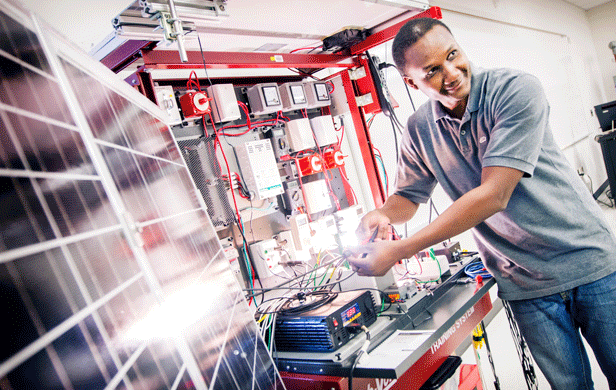
According to the International Energy Agency, a staggering 90% of all new electrical capacity brought online around the world in 2015 came in the form of renewable energy. That same year, China invested a record $110 Billion in clean tech – virtually 100% of its electrical capital – and in 2016, it’s set to close 1,000 coal mines. While Canada is shedding fossil fuel jobs like they’re going out of style, the world’s current economic powerhouses – China, the US, Germany, Brazil, Korea – are generating millions of new green jobs.
In other words, the bust we’re witnessing in Fort McMurray and North Dakota is no mere blip – no typical, “cyclical” downturn. Common Sense Canadian contributor and retired federal government energy innovation expert Will Dubitsky, who has been tracking and publishing these figures here for several years now and whom I draw on extensively for this article, put it to me in the following terms:
[quote]We don’t expect a return in the blacksmith business. At some point, it was simply replaced by more modern tools and trades.[/quote]
Statistics don’t have feelings
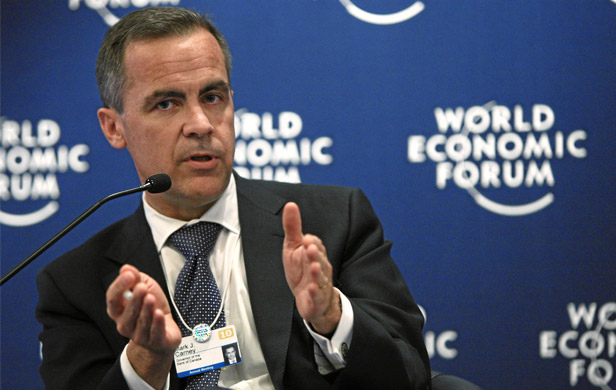
Even if you dismiss the extraordinary economic opportunities emerging in the clean tech sector, the mounting costs and existential threat of climate change are proving impossible for global leaders to ignore, as Paris demonstrated. People at the very core of the so-called “establishment” – from Mark Carney, Governor of the Bank of England to BP Chief Economist Spencer Dale, now acknowledge that most fossil fuel reserves will have to be left in the ground.
Based on all the available research today – and we have reams of it in our Renewable Energy section – the fossil fuel era is rapidly drawing to a close.
And here’s the cold, hard truth: Statistics and facts don’t care whether you’re a bleeding-heart tree-hugger or dyed-in-the-wool Alberta conservative. They don’t care how badly you need your old job or whether you feel persecuted or unappreciated by the rest of the country. They don’t care about your stock portfolio, your values, your moral compass, your grandchildren, vanishing caribou herds, wild salmon or spotted owls. And we, as a nation – as citizens, employers, employees, parents, youth, pensioners, taxpayers and voters must decide whether we wish to embrace these new realities or bury our heads in the sand – a particular bitumen-laden variety.
Leaping in circles
Canada’s political parties, provincial and federal, are all grappling with these realities in their own, interesting ways – a spectacle now on display from coast to coast to coast.
The NDP’s gong show of a recent federal convention is a prime example. Following his election failure last Fall, Thomas Mulcair absorbed two final nails in his coffin – both over the same issue but from completely opposite ends of the party’s political spectrum. He was too centrist for the party’s left wing, while his openness to the Lewis/Klein faction’s anti-pipeline “Leap Manifesto” angered the Rachel Notley-led provincial party in Alberta, (not to mention working the usual pundits into a tizzy over its sheer audacity, pronouncing the NDP dead upon the manifesto’s arrival). Why on earth Mulcair let the convention happen on Notley’s turf is anyone’s guess.
But Notley fully merits recrimination for her recent ultimatum on pipelines. She won’t get them through BC – even Kinder Morgan is a non-starter, which, apparently no one but we British Columbians, in the “West beyond the West”, realize. The particular blend of First Nations, court challenges, municipal government opposition, powerful coastal activists, widespread public condemnation and complete lack of economic or “jobs” case for the project means that it simply will not happen. I’m taking bets for anyone foolish enough to lay one against me. I’m already collecting on my Enbridge wagers from 5 years ago. Notley will learn soon enough.
BC or Quebec – take your pick
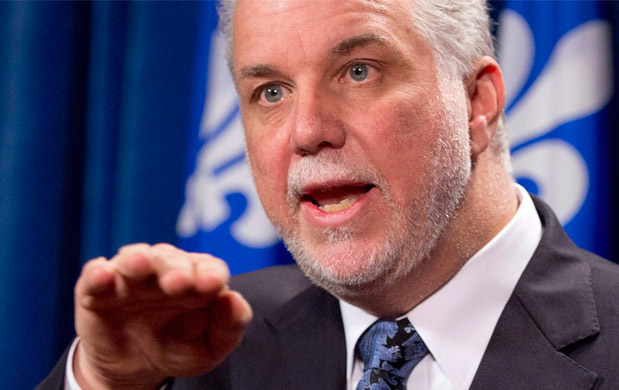
As for Energy East, well, Notley’s got another fiercely “distinct” Canadian province to contend with in the form of Quebec. Good luck with that one.
But the bigger issue is the whole “getting bitumen to tidewater” argument – i.e. that Canadian bitumen producers are getting shafted on the price for their product because of a lack of pipeline capacity and shipping opportunities. While it sounds credible enough on the surface to people who don’t know better, and it may have been true a few years ago, it no longer holds water today. Moreover, the global growth in demand for fossil fuels is flattening out, while, according to this blog from the World Economic Forum:
[quote]Petroleum consumption in the US was lower in 2014 than it was in 1997, despite the fact that the economy grew almost 50% over this period.[/quote]
In this energy climate, there simply is no argument for expanding export capacity.
Trudeau singing same tune
You can lump the Trudeau government in with Notley on this one, as it continues to advocate for many of the same projects and backs BC’s LNG pipe dream. One of these days, Justin may learn that he can’t have his cake and eat it too – but we appear to be a long way away from that today. In the meantime, he would do a lot to assuage British Columbians, First Nations and the environmental community if his cabinet declined to issue the permit now before it for the controversial Lelu Island/Petronas-led LNG project near Prince Rupert.
BC NDP flip-flops on LNG
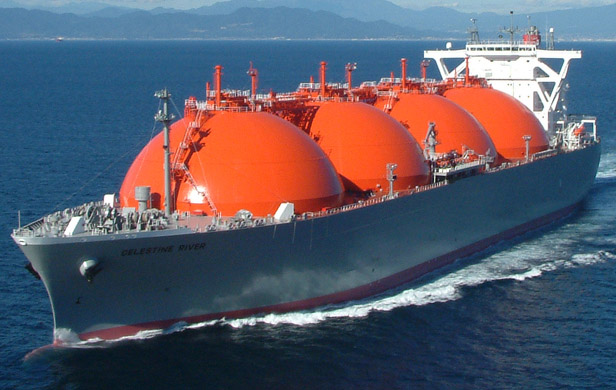
This project and many others are the brainchild of BC Liberal Premier Christy Clark, who evidently has not received the memo on all the above realities (though we at the CSC have sent her many!). Up until recently, the John Horgan-led provincial NDP was fully on board with fracking and LNG, then it showed signs of changing its tune – a welcome development that would have gone a long way to helping it get elected in May 2017, for the first time in 16 years.
That was, alas, before Horgan flip-flopped back to the pro-LNG side, kow-towing to union pressure. Besides the obvious political, moral and scientific problems my colleague Rafe Mair addressed with this catastrophic error in judgement by Horgan, even the labour justification is plain wrong-headed. Horgan and BC Building Trades boss Tom Sigurdson clearly don’t understand that there are no jobs to be had for British Columbians in LNG. Even if a single project of 21 proposed gets built – which is looking increasingly unlikely given global crash in LNG prices and steady withdrawal of capital – the BC Liberal government has already promised many of these jobs away to China, Malaysia and India in the form of cheap, foreign temporary workers!
I laid out in these pages precisely how the NDP could successfully re-brand itself, incorporating all these insights. In short, the key to their success is the following slogan and all that goes with it: “New Democrats, New Economy.” But the chances of them getting with the program are diminishing by the day.
Notley’s dilemma
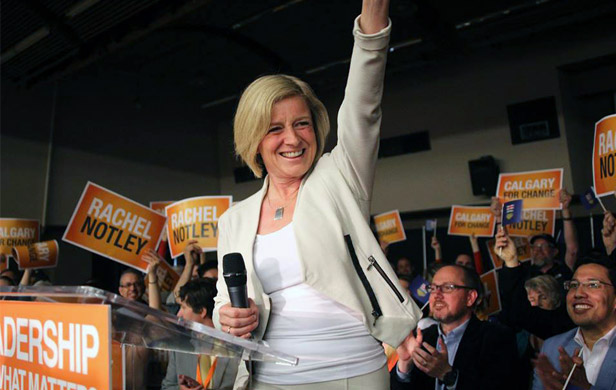
The same logic and opportunities apply in Alberta, though it’s an even steeper hill to climb there. I appreciate the bind Ms. Notley finds herself in – which explains her backpedaling on a number of more progressive energy policies she ran on last year. Her pollsters must be telling her she’s got to make these grandiose declarations on pipelines and undercut the federal party if she has any hope of getting re-elected.
She faces an electorate that is understandably anxious about its future – that only wants things to go back to the way they were in the good old days of $100-150 oil. It’s a scary thing not knowing how you’re going to feed your family. But things in Alberta aren’t going back to the way they were before, no matter how uncomfortable that reality is. And giving people false assurances will only make the problem worse. The only thing that can rescue the Alberta economy and bring jobs back is creating new ones – and there are real ways that can happen (more on that in a moment). Alas, for the moment. it’s easy to see how that may yet seem politically impossible to Ms. Notley.
Not all wine and roses
OK, to the skeptics who’ve gotten this far in the article, first of all, thank you for hearing me out. Second of all, you’re right about a lot of things.
You’re correct that we won’t suddenly replace fossil fuels with renewables across the board. There will necessarily be a transition period and quite possibly a place for fossil fuels in the mix for some time to come. We also won’t be able to sustain the level of growth, materialism and waste in our economy that relatively cheap, abundant fossil fuels have enabled over the past century. Some tough adjustments will need to be made there.
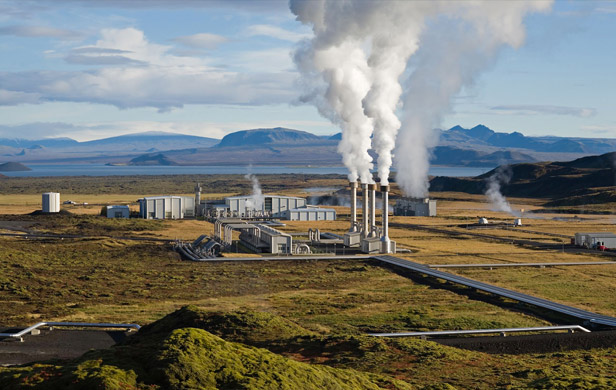
Moreover, not all renewables are created equally – and they all have their problems. Most are not “baseload”, meaning they’re only available intermittently. The exceptions are geothermal (a huge untapped opportunity for places like BC), and large hydro dams, which aren’t clean or green for a whole host of reasons.
The solution to the intermittency issue is multi-fold. It requires building a grid with overlapping sources which fill in each other’s gaps at different times. In places like BC, Manitoba, Quebec, and a number of US states, those large dams we already have can underpin newer, non-baseload renewables. Geothermal can do the same and has for decades in San Francisco. Iceland gets more than half its electricity from it.
There are other problems with renewables though. Aggressive incentives for renewables like feed-in-tariffs have led to soaring electrical costs and energy poverty in places like Germany and Ontario, while in BC, our disastrous private “run-of-river” sham has ravaged watersheds and put BC Hydro on the brink of bankruptcy. The renewable energy sector is no more immune to greed, corruption, foolishness, and government mismanagement than the fossil fuel sector is. Anything we choose to build must be done carefully and with the public interest in mind.
Conservation is the key
The most important piece of the puzzle is conservation – the only form of energy that carries zero environmental impact or cost. The good news is we’re already doing a great job at this. Americans are using roughly the same amount of electricity in their homes today as they did at the beginning of the millennium – despite population increases, more elaborate gadgetry, and the arrival of electric cars. It’s the same story here in BC.
Things are looking up
Now for the really good news! Once we get past the denial and difficulty of letting go of everything we’ve come to take for granted, there are huge upsides to the end of the fossil fuel era. As columnist Will Dubistsky put it in these pages recently, the above developments have resulted in “an amazing decline in energy-related CO2 in both China and the US and global emissions remaining flat since 2013! What’s more, for the first time in history emissions have declined during a period of economic growth.”
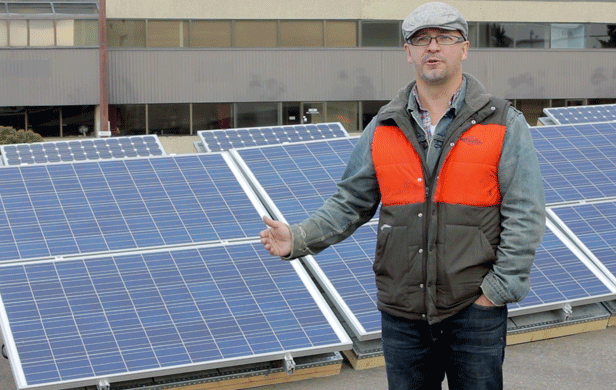
The message we so often get from the media and our elected leaders, particularly in Canada, is, “Sure climate change is a problem and we have to act, but we’ll get to it in 20 years.” Well, the world is already getting to it. Reducing emissions is very much achievable. So is transitioning to renewable energy, and while Canada has remained on the sidelines of the green jobs revolution thus far, there are signs that’s beginning to change.
Suncor recently announced plans to build multiple wind projects in Alberta. Meanwhile, a group of oil sands workers calling themselves Iron & Earth is pushing for resources to retool their skills for clean tech. These welders, electricians, boilermakers, pipe-fitters, carpenters, etc. are well positioned to transfer their considerable abilities towards wind, solar and geothermal. They’re calling on Rachel Notley to expand Alberta’s solar training programs to include retraining of existing electricians for solar installations. And that’s no big leap.
So, we have two choices as Canadians: 1. Accept that the end of the fossil fuel era is nigh and get on with building a new economy that puts Canadians to work in sustainable, longterm jobs; 2. Remain in denial, chasing a vanishing sector, ensuring Canadians remain out of work…and then accept that the end of the fossil fuel era.
The statistics don’t care. It will happen either way.
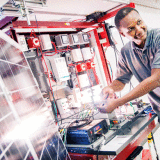

Great article Damien. Your link to Dubistsky is priceless. I’d like to leave you and the readers a link that may give you a new perspective on renewable(wind and solar) intermittentancy.
https://www.youtube.com/watch?v=h_F5pWGdP64
There is a death wish operating which most people who subscribe to the AGW view of climate seem to be unaware of. There is a new Little Ice Age dawning.
“The latest sign of it is that the North Atlantic is cooling.In addition to solar cycles, temperature cycles in the planet’s oceans play critical roles in our ever changing climate and also on the extent of global sea ice. Oceanic temperature cycles are often quite long-lasting and a warm or cold phase can persist for two or three decades at a time. In general, the Atlantic Ocean experienced a cold phase from the early 1960’s to the mid 1990’s at which time it flipped to a warm phase and that has continued for the most part ever since. The current warm phase; however, is now showing signs of a possible long-term shift back to colder-than-normal sea surface temperatures (SST) and this could have serious implications on climate and sea ice areal extent in the Northern Hemisphere.”
I am not in denial and agree with your analysis, Damien, except that we can do so much more in terms of energy conservation. Energy conservation should be the starting point before considering new large scale renewable energy projects. Smart changes would range from passive solar buildings, smaller homes, triple pane windows, Passive House insulation, eating local and seasonally, disincentives for car use, incentives for public transport, etc. There are endlessly creative ways to use less energy.
Notley’s real dilemna is provincial bankruptcy, because previous governments have spent all the cheap resource rents like there was no tomorrow. Do we hear Norway whining about a crash in oil price? No, they still have half a trillion dollars saved and invested from when the prices were good.
BC had every intention of copying Alberta’s cornucopian model of “making a killing” from fossil fuels – first subsidize the heck out of every big project out of fear they will go elsewhere, and then forget to save the revenue for a rainy day, or forget to save for the inevitable costs of fossil dependency and a real transition to a new energy paradigm.
Meanwhile, some catastrophic sea level rise is already baked into the climate cake, but Alberta is oblivious to such faraway coastal concerns. You do have to wonder where the money’s going to come from to relocate all that coastal infrastructure. It certainly isn’t going to come from waterfront property taxes, is it?
If its the end of the fossil fuel, then approve energy east and let the private sector build a pipeline. It will be a moot point if the pipeline gets built and there is no demand for the product.
Time for Canada to move on. If the fossil boys need to play pipeline let them play. The rest of us can build the low carbon economy.
Green-lighting new pipelines means continued public subsidies for a dying, unhealthy sector. These subsidies come in many forms – capital tax breaks, royalty credits, cuts to export taxes, curtailing of regulations, rubber stamping environmental certificates, not to mention the inevitable externalizing of environmental damage and increases in health care costs. I’m with Prince Charles when he says it’s time to cut the oil and gas industry off the public teat. We’re being asked to bend over backwards, give away the farm to make these pipelines and terminals a reality. Why not redeploy those resources now into an industry with a future?
https://energydesk.greenpeace.org/2015/11/11/chinas-coal-bubble-155-new-overcapacity/
Contradicts much of this article. It appears that the vast majority of new energy coming online in China is in fact coal powered. Can we have a breakdown of the facts and figures used to determine what is what?
Here you go Jeff:
http://ecowatch.com/2016/02/29/china-co2-emissions-fall/
http://www.theguardian.com/environment/2016/mar/16/surge-in-renewable-energy-stalls-world-greenhouse-gas-emissions
Thanks for providing the sources I will take some time tonight to read over them.
Very nice indeed to see that 90 per cent of the world’s new electricity in 2015 came from renewables. On the other hand, oil consumption in 2015 was the highest on record. I wouldn’t count fossil fuels out for a while yet.
I didn’t say they’re gone tomorrow, Bill. But global growth in oil demand is rapidly tailing off and the world’s two biggest fossil fuel consumers are heading in the right direction, with China’s coal consumption turning downhill after a decade of massive growth. Meanwhile, “Petroleum consumption in the US was lower in 2014 than it was in 1997, despite the fact that the economy grew almost 50% over this period.” On that note, perhaps the most significant development here is the apparent decoupling of fossil fuel consumption from economic growth – used to be the two went hand in hand. Not anymore. These, couple with the explosion of renewables and plummeting cost, are seismic shifts.